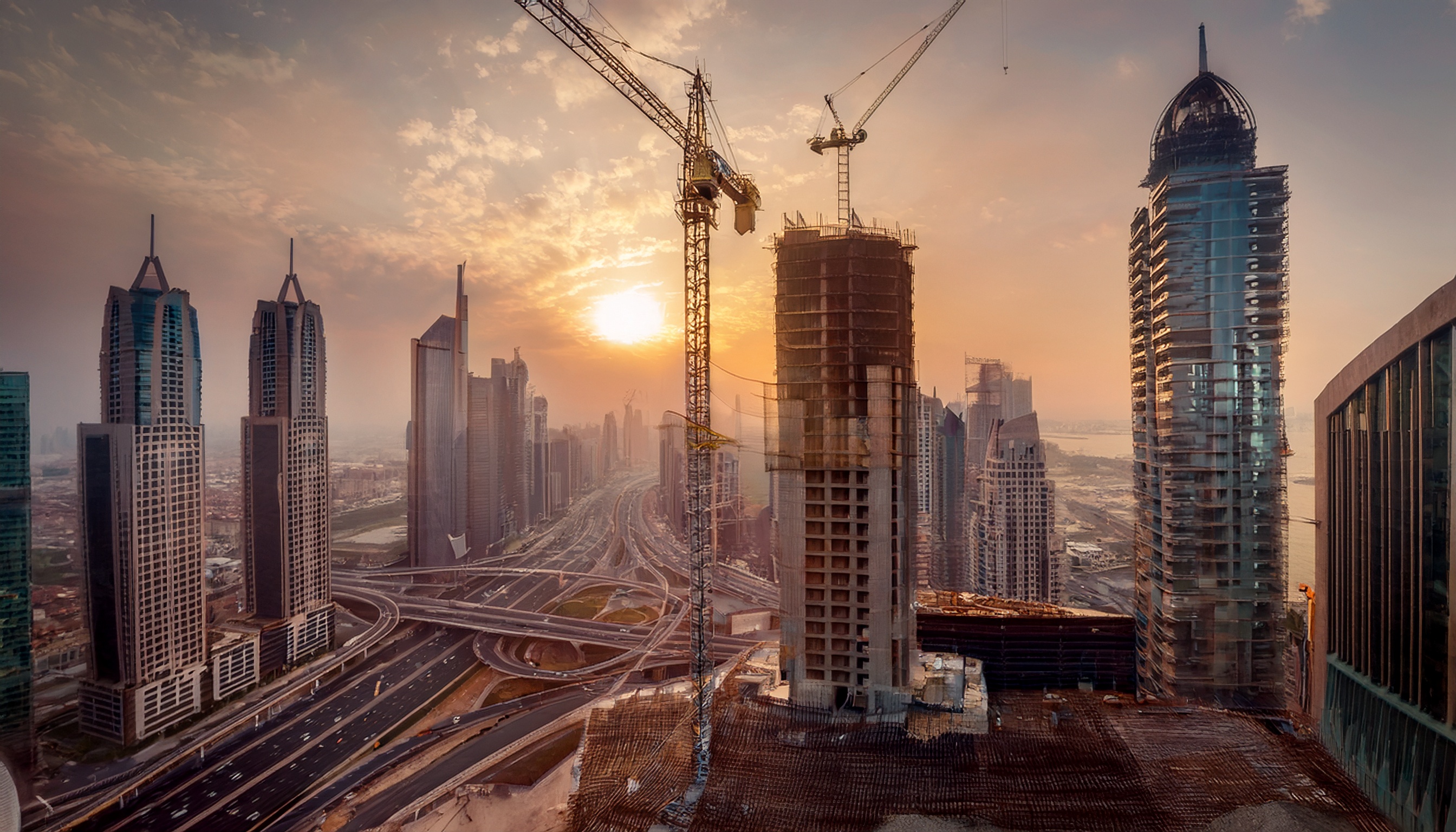|
Informative

.svg)

Dubai’s real estate market is experiencing an unprecedented boom — property prices have surged 70 percent over four years, and with the government planning for the population to double by 2040, developers are racing to meet demand.
A surge in real estate development in Dubai, backed by the UAE’s Vision 2040 and foreign investment inflows, has turned the emirate into one of the world’s fastest-growing property markets. From luxury villas to mixed-use masterplans, developers are seeking smarter, more integrated construction delivery models to keep up with demand.
A growing number — including Emaar Properties (via its new unit Rukn Mirage), Samana, Ellington, Azizi, and Arada — are launching in-house contracting units to take greater control over timelines, costs, and quality.
This shift is redefining the Dubai construction landscape, where top-tier developers are evolving into full-fledged design-and-build entities. The move toward in-house construction management is driven not only by cost optimization but also by the desire to maintain brand quality, improve coordination, and accelerate delivery cycles.
With surging demand and a shrinking pool of external contractors, outsourcing is giving way to a strategic shift toward in-house delivery. And the right technology can make all the difference.
Digitization and construction management software are becoming critical enablers of this transition. Tools like INGENIOUS.BUILD help developers in the UAE and GCC streamline communication, automate workflows and maintain compliance across multi-billion-dirham projects.
In-house contracting also offers data ownership, improved supply-chain visibility and end-to-end project transparency — key factors for developers targeting both luxury real estate and affordable housing segments across the UAE.
While in-house delivery offers more control, it also brings new operational challenges:
For developers shifting to in-house contracting, success depends on centralizing control and streamlining processes. INGENIOUS.BUILD offers the tools to make this transition scalable and efficient:
✅ Centralized Oversight: Unify budgeting, scheduling, quality checks, and reporting in one platform.
✅ Real-Time Monitoring: Track progress, costs, and milestones with live data dashboards and alerts.
✅ Streamlined Collaboration: Connect design, procurement, and construction teams in a single workspace to eliminate silos.
✅ Risk Mitigation: Maintain audit trails, ensure compliance, and use forecasting to optimize resources and avoid idle capacity.
✅ Cash Flow Alignment: Link project delivery milestones with escrow release processes to keep finances flowing.
✅ Flexibility: Manage both in-house and outsourced work within the same system for hybrid project portfolios.
By leveraging cloud-based construction management software like INGENIOUS.BUILD, developers in Dubai can unify their data, reduce administrative overhead, and maintain transparency across multiple stakeholders — from consultants and architects to on-site engineers.
Dubai’s move toward in-house construction reflects a wider industry trend — rising costs, increased demand, and limited contractor availability are pushing developers to take full control of their projects.
But with more control comes greater operational complexity. Developers need a single source of truth to keep every moving part — from land acquisition to final handover — on time, on budget, and on spec.
That’s where INGENIOUS.BUILD comes in. Our all-in-one construction project management platform gives you the data, collaboration tools, and oversight to deliver in-house projects with the same precision and efficiency as the world’s leading builders.
Ready to scale your in-house construction strategy?
Book a demo today and see how INGENIOUS.BUILD can help you control costs, streamline operations, and deliver faster.
Built for the Middle East construction industry, INGENIOUS.BUILD helps developers meet the challenges of scalability, compliance, and coordination across large portfolios — making it the go-to solution for modern real estate delivery.
In-house contracting means a developer manages the construction process internally rather than outsourcing it to a general contractor. This approach provides greater control over timelines, costs, and quality.
Due to a shortage of qualified contractors, rising land and material costs, and high delivery expectations, many developers are adopting in-house models to maintain schedule certainty and quality.
Key challenges include managing labor, procurement, compliance, and financial risks. Without a centralized digital system, developers risk inefficiencies and data silos.
Platforms like INGENIOUS.BUILD streamline workflows, track costs in real time, and connect cross-functional teams — enabling developers to scale efficiently while maintaining oversight.